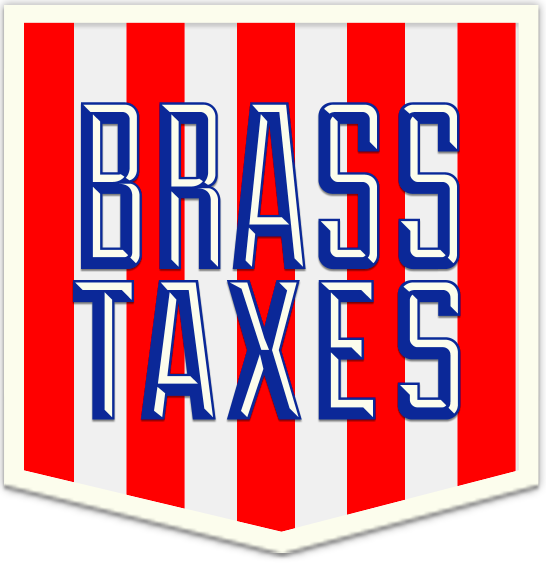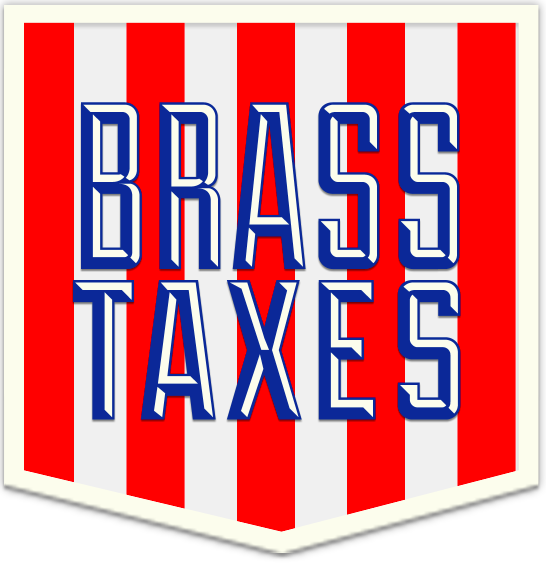Tax Tips with Brass Taxes!
Fiscal Sponsorship | Tips and Tools | Finance | Taxes | Artists and Members

Tax season is fast approaching! It’s been a year since the new tax law was passed. We’ve received numerous questions from our projects about its impact and now we have the scoop. In this article, you will get a basic overview of the New Tax Law’s adjustment to the Pass-through Deduction and great tips as you prepare to file your 1099. Fractured Atlas recently had the pleasure of speaking with Rus Garofalo, President of Brass Taxes, about what to expect this filing season with the new tax law.
What is Brass Taxes?
Brass Taxes is a team of tax preparers who promise to deliver personalized tax guidance with a focus on transparency and education. We work to humanize the tax experience. We promise to ask you questions to understand your work life & what is important to you. We promise to recognize that there are many solutions to an individual’s tax situation and we often call on our collective brain power to learn and grow with your unique needs.
New Tax Law & the Pass-through Deduction
Can you start by giving us an overview of what the Pass-through Law is?
This applies to businesses, which includes individuals who are just getting paid as themselves, individuals who are getting paid as a Partnership, S-Corporation, or an LLC that is taxed as Sole Proprietor, Partnership or S-Corporation. The basic pass-through rule for entities is that the company itself won’t be responsible for paying taxes, but the individual owner(s) themselves will pay taxes.
How will the new Pass-through tax codes affect me filing my taxes if I’m a:
- Individual/sole proprietor/self-employed taxpayer?
- LLC?
- Corporation?
First, it is important to note that an LLC is not a tax designation.That’s why you’re in an LLC taxed as a Sole Proprietor or an LLC taxed as a S-corporation for example. Being an LLC does not indicate any tax status, it just indicates that you have a legal protection. An LLC is irrelevant to the new tax code because an LLC has to choose how it’s taxed and that’s how to determine if you’re affected by this. Sole Proprietors /Partnerships /S-corporations are going to see the biggest change for your projects and LLCs will most likely be taxed as one of those.
With the new tax law, Sole Proprietors, Partnerships, and S-Corporations will in general NOT pay INCOME tax on 20% of the profit from your business.
Note: Income Tax is based off of tax bracket.
How were these entities taxed before versus now?
The new tax law says that up to a certain income level you don’t have to pay Income Tax on 20% of your profit. The way the rule is written, small businesses will still pay all self-employment tax, but if they earn below a certain income level ($157,000 for Singles and $315,000 for Couples ), they won’t have to pay 20% of the profit after expenses. They’re calling it “Qualified Business Income tax”.
So, it should be a lower tax scenario for self employed individuals, S-corps, Sole proprietorships, partnerships, and LLC taxed as all those.
Can you give us an example of the new Pass-through tax law?
If a company earned $100,000 and the company’s expenses for that year totaled $60,000, the $40,000 left over is what will get taxed. They will have to pay all Self Employment Tax based off of the left over amount, or profit. However, 20% of that $40,000 won’t be subject to Income Tax because it is under the $157,000 (Individual) tax bracket.
This explains the business side, but what is the standard deduction effect on personal filing?
Hypothetically, you start with the leftover $40,000 and subtract 20% ($8,500), subtract your Standard Deduction ($12,000), subtract any other deductions the individual may have, and in general, whatever’s leftover is what you pay your income tax on.
Please note: These examples are for instructional purposes only. The order in which these deductions take place will vary.
Some grants can be paid to artists directly and do not need to be made payable to a fiscal sponsor. Can you tell us how the New Tax Law impacts artists receiving grant income directly?
Usually, we would approach this on an individual basis because it depends on if the grants are treated as self-employment or just subject to income tax. If the grant is subject to self-employment income it would have some of the same advantages of potentially getting the 20% pass-through benefit of self employed income.
For artists who are receiving grants directly, I’ve read that local and state grants may be taxed differently than other grant income, can you confirm or deny this?
There shouldn’t be a difference in the way these grants are taxed in general. If there are any stipulations, there will more than likely be information provided and a specific set of tax forms that the funder would ask to be completed before issuing the grant.
Best Practices for 1099 Recipients
We’ve already discussed the tax implications between different types of businesses. What is the benefit, if any, to not filing as an individual with a social security number?
This can range anywhere from legitimacy validation, the ability to charge more, or the personal liability protection of a LLC or Corporation in regards to lawsuits. There can also be some tax benefits for S-Corporations in higher income ranges as well. You also can get an Employer ID from the IRS and you don’t have to give your social security number to everyone. It’s free.
What are the some of the best bookkeeping practices they should do for their 1099-MISC?
I strongly suggest getting an accountant and doing whatever system they use during the year. A simple way is take 10 envelopes, write the tax category on each envelope and when you go buy something like masking tape (for example) put that receipt in your wallet and then dump all those receipts into one of the 10 envelopes. Then, you can just add up all those receipts at the end of the year. You’ll most likely not need those receipts. It’s only in the off chance that you get audited.
What really happens if the IRS audits me?
An audit is just a process of the government saying “Show me how you got these numbers.” Think of it like a research paper. Depending on how well you managed your records, this will dictate how long it will take you to support the numbers that you filed. There’s also a Taxpayer Advocate that can help you with this process if this should ever happen.
What if I don’t declare the money that Fractured Atlas releases to me?
The IRS will likely send a letter somewhere between 6–24 months later requesting that you pay self employment or income tax based off of the information that was reported to them from your 1099.
What is the difference between a 1099-MISC and a 1099-K? Should different types of 1099s be handled differently?
For most people working with Fractured Atlas they won’t be handled differently. 1099-K is a new form that states they are sending this information to the IRS but it’s not clear why. For most clients doing creative projects, a 1099-K and 1099 MISC will all goes towards their business income.
Some of our Individual/ Sole Proprietor artists receive benefits, like Unemployment and Disability Income, and fear that our 1099-MISC will jeopardize this benefit. Can you share your advice on how they can offset this or how they should prepare ahead of time?
A lot of that is based off of State tax law, not the new tax law. In general, this would be indicated on the schedule C section that the Fractured Atlas income will be listed under. Projects should refer to their local tax adviser.
What happens if I donate to my own project?
Generally, it should be fine if the individual is NOT taking the charitable deduction, but essentially the rule is you CAN’T take a deduction for charity that benefits you directly.
Please note: Fractured Atlas staff are not licensed tax professionals. You should contact a licensed accountant or tax lawyer to ensure you’re completing the correct tax paperwork for your specific business type.
About Lauren Lattimore
Lauren Lattimore is a proud native Detroiter with a B.A. in Communication Arts from Eastern Michigan University. In 2013, she completed her Master of Fine Arts degree in Acting from the New School for Drama. She has since been in productions at the MCC Theatre, Columbia University-Mainstage, and The New Brooklyn Theatre. Although performing is a great love of hers, chocolate is her kryptonite. In her spare time she can be found listening to music, catching up with her DVR, or discovering a new restaurant in the city!


